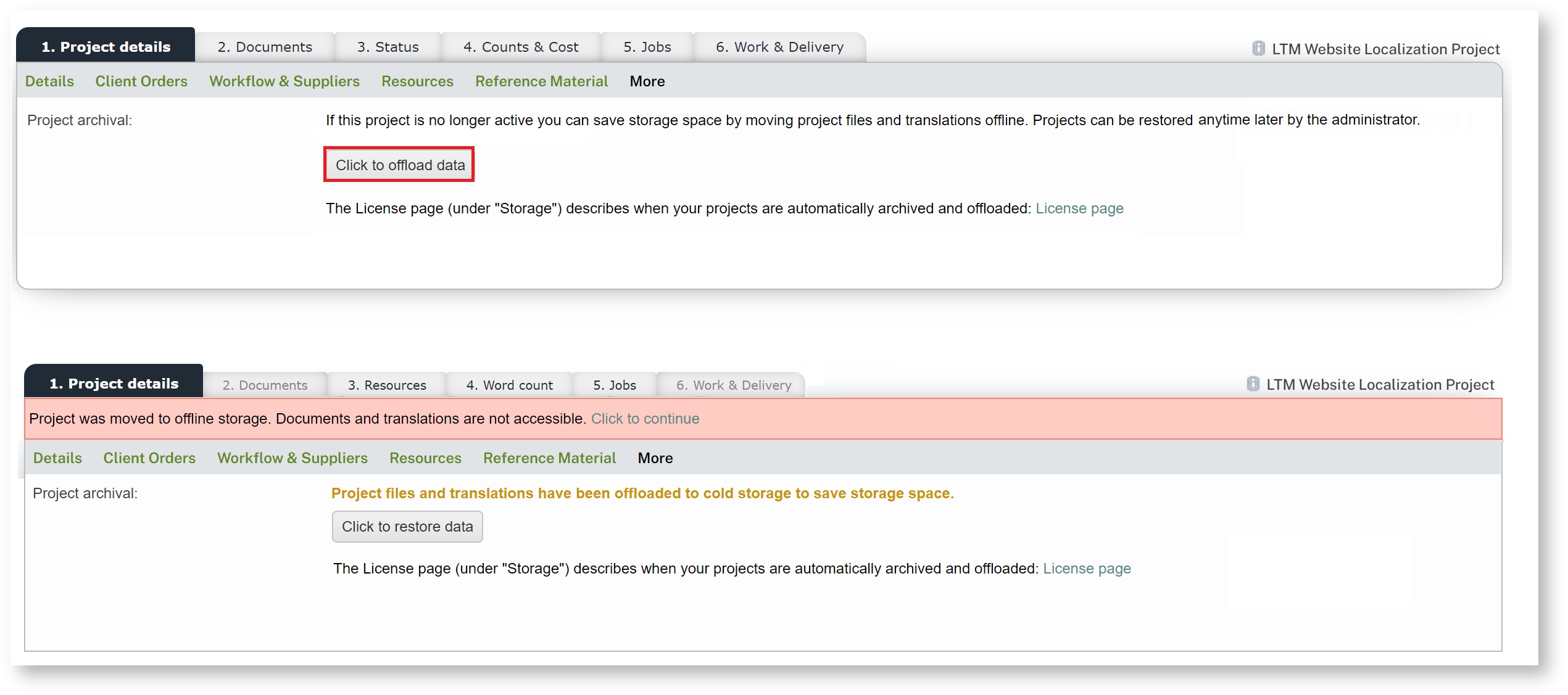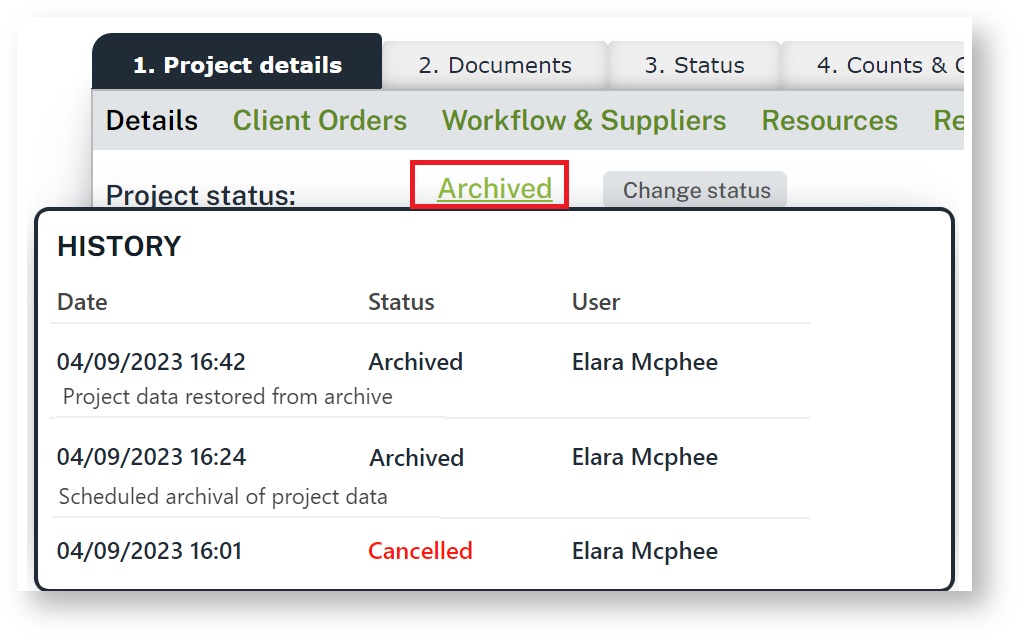Project files and translations are moved to cold storage when a project is archived or canceled for an extended period of time. The archival and offloading solution in Wordbee Translator is scheduled to operate at regular intervals to optimize the storage capacity of the platform. It archives and offloads all files in projects that meet a given set of criteria to cold storage, so you can bring an administrative close to them. Once offloaded, project and job details are still accessible, but files and translations are not. Since files can be valuable long into the future
any given project if needed.
How to archive and offload projects
Automatically
Inside the License and Usage page, you will find all the details related to the File Storage dedicated to your Wordbee Translation platform.
The automation in place for archival and offloading is scheduled during regular intervals. Below are the conditions projects need to meet in order to be automatically offloaded by the system.
Criteria to automatically offload projects
- Projects remain in status 'archived' or 'canceled' during a given period (see latency periods defined)
- The latency period for automatic archival, following project completion. It can vary from one month to a full year (according to the customer's SLA plan)
- The latency period for automatic offloading, following project archival. It can vary from one week to one month (according to the customer's SLA plan)
- The latency period is reset any time a change is done into an 'archived' or 'canceled' project (this includes restoring a project or manually changing its status).
Manually
Archiving projects and their documents is probably the last task of a project. Although it can be set as an automation rule in the work processes of the platform, Administrator users have the ability to trigger the archival and offloading of individual projects on the spot.
Inside the Project details page, navigate to the 'More' section and find the dedicated option for Project archival:
Once the 'Click to offload data' is triggered, the files of the project will be transferred to a secure space. Note that many sections of the project remain available for consultation, although the project files are no longer available online.
The archival and offloading of projects are also recorded in the status history of the project. These logs serve to follow up on all the events that have happened during the project lifecycle and provide a closer look at all actions taken along the way.
How to list offloaded projects or search files within them
Using the filters in the main Project page users will be able to find which projects remain fully available in the system and which are moved out to cold storage. These filters can also be used to locate specific files in a project, regardless of their offloaded status.
How to retrieve the files back from an offloaded project
By clicking the option 'Click to restore data', the project will be refloated entirely to the online platform. The actual files and deliverables will become available again, just as when first created.
Benefits of Project Archiving
With the module for project archival and offloading, you are able to:
Manage the space available in the online Wordbee Translator platform (as per subscription details), with the option to manually recover offloaded projects on demand. More space for the online platform can always be purchased if required.
- Maximize the performance of the system for daily activities. By optimizing the use of online storage resources can be distributed more efficiently in the projects and jobs currently in progress.
- Provide an up-to-date overview of your projects List. Ensuring you have archived your old projects will help to clean up your projects lists and help you with better management of your current ongoing projects.
- Create transparency when rendering translation services. In accordance with ISO standards, archiving projects is an essential mechanism of record keeping and evidence of consultation activities. In order to ensure that your organization is accountable for any decisions made during the project lifecycle, providing access to the archived files and data may be critical.
- Keep the essential data online. With project data and records on hand, the business analytics module in the system can still pull information for long-term reporting.
- Help new projects and team members understand projects – old project material can be useful for training or as a point of reference when a new employee needs extra information.





